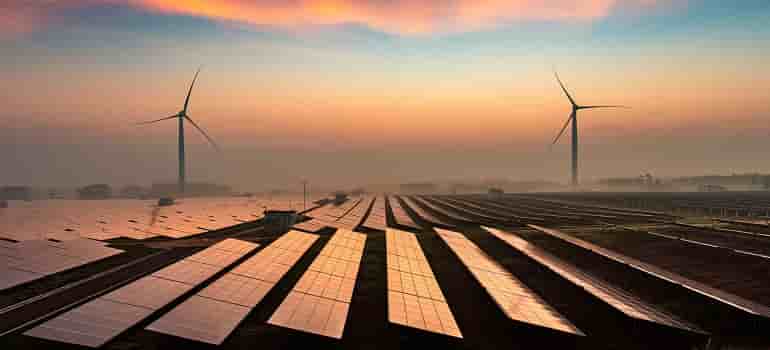The Power Foundation of India, in collaboration with the Climate Policy Initiative, hosted a critical conference today titled “Distributed Renewable Energy for Sustainable Development.”
The event, held at The Ashok in New Delhi, brought together key stakeholders from government, private and public sectors, and policy think tanks to address the crucial role of Distributed Renewable Energy (DRE) in India’s path toward a sustainable future.
Rural Focus for Decarbonization Efforts
The conference recognized the unique challenges faced by rural areas in India, highlighting their significance in the nation’s decarbonization efforts. Recognizing this urgency, the focus shifted towards promoting decentralized, community-driven, and localized solutions, with DRE projects emerging as a central theme.
Prominent figures like Shri Bhupinder Singh Bhalla, Secretary, Ministry of New and Renewable Energy, and Dr. Tripta Thakur, Director General, National Power Training Institute (NPTI), participated in the event. Shri Sanjiv Nandan Sahai, Director General of the Power Foundation, emphasized the potential of DRE projects to expedite India’s renewable energy progress due to their shorter implementation timelines. He further elaborated on the diverse benefits of DRE, including harnessing biomass and solar energy sources, and empowering Micro, Small, and Medium Enterprises (MSMEs) and small commercial and industrial consumers.
Dr. Dhruba Purkayastha, Director of the Climate Policy Initiative, underscored the importance of collective action to unlock the immense potential of DRE in India. He emphasized leveraging falling costs of renewable energy and storage technologies, fostering collaboration among stakeholders, and implementing effective policy and regulatory frameworks. This collaborative approach, he stressed, paves the way for a resilient, equitable, and low-carbon distributed clean energy ecosystem that caters to underserved communities.
The conference served as a significant platform for knowledge exchange, raising awareness, and proposing practical solutions for broader adoption of DRE. By addressing challenges and advocating for policy changes, the event aimed to propel India forward in its journey towards a sustainable energy future, with DRE playing a pivotal role in achieving this goal.


